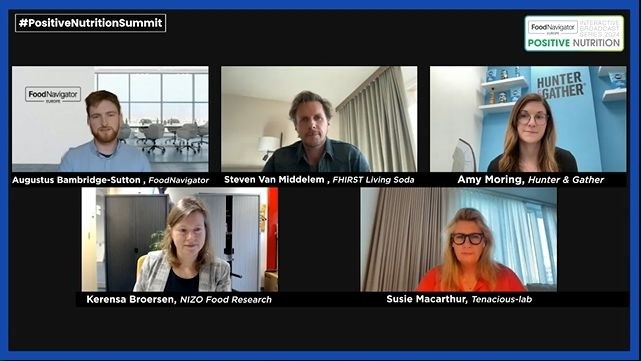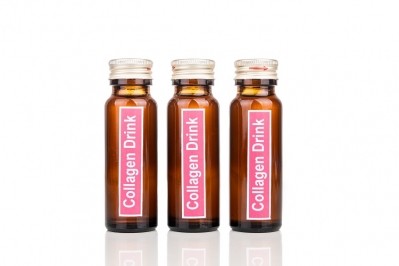Taste, appeal, health claims: Getting functional foods to consumers

Functional foods – foods that provide consumers with a specific function rather than simply filling them up – continue in 2024 to be a widespread trend. But what exactly do consumers want from functional foods?
Functional or healthy?
What differentiates foods that are defined as ‘functional’ from foods that are simply ‘healthy’? According to Susie Macarthur, COO of CBD and cannabinoids group Tenacious Labs, it’s all about need.
Food defined as functional “has very strong functional properties,” fulfilling a specific need, rather than simply being good for us on a more general basis, she told delegates at FoodNavigator's recent Positive Nutrition Digital Summit.
According to Kerensa Broersen, project leader for advanced analytics at research organisation NIZO, functional food trends are the result of a "more systemic way of thinking: how does food affect our overall wellbeing? That's something that's pretty new and novel.”
“A more systemic way of thinking: how does food affect our overall wellbeing?"
Why are consumers shifting to functional foods?
The new trend towards functional foods is driven by an increasing consumer awareness of health and its intricacies.
People are moving beyond seeing food as simply something to fill us up, according to Amy Moring, co-founder and CEO of real foods brand Hunter and Gather. “We've seen a real shift of people not just looking at food as being something that you put in and it fills a gap.
“People are now . . . looking back, taking inspiration from how we thrived ancestrally. And you've got more of a lifestyle approach rather than just (a focus on) a specific ingredient or a specific diet.” Functional foods, she suggested, give consumers more ‘control’ over their health and wellbeing.

Tenacious Labs’ Macarthur agrees, adding that functional foods have led to “the ability now for the consumer to seek out health practices that support the betterment of their mind and body.” Access to information also empowers consumers. “We’re now in an age where they can get more and more information about that.”
Functional food to destress
Many consumers desire stress relief from functional foods, likely due to the stresses and strains of living in the modern world.
A key ingredient group for stress relief are adaptogens, which relieve stress by interacting with the body’s sympathetic nervous system, a key part of the body’s stress response, according to Hannah Skingle, COO of functional beverage company G-Spot.
Health is still central, and the popularity of functional foods is tied to increasing consumer awareness on the importance of health, according to Steven Van Middelem, founder at probiotics drinks company FHirst. “I think overall, consumers are more engaged than ever before with the importance of good health generally. The pandemic played a key role in this, shocking the public into acknowledging that good health is something we should all be striving for."
Does the functional food consumer care about taste?
Despite the many benefits of functional foods when it comes to health, appealing to consumers in other ways is nevertheless important. Taste, for example, remains paramount, since we are still talking about food rather than supplementation.
“What is very critical here is that apart from actually providing healthy products with a specific functional asset, is that food should also be appealing. Sensory aspects are critical to the consumer acceptance, and that's something we work on quite heavily as well,” said NIZO’s Broersen, whose research focuses on functional foods.
“We see it all so often where food and drink brands enter the 'better for you' category promising credentials and they don't really taste great. At the end of the day something might be good for customers but if it doesn't taste good it's a really hard sell,” FHirst’s Van Middelem suggested.
However, on some occasions a good taste can potentially harm consumer perceptions of functional potential, according to Hunter and Gather’s Moring. “We have some consumers that don't actually want (the product) too tasty, because they think that the product isn't good for them,” she told the panel.
But many consumers do want a good taste, and with good ingredients this can happen, she suggested. “You also don't want consumers to have a bad experience when it's not tasted great or they've not enjoyed it. It doesn't need to be that way: if you've got good quality ingredients they often do taste good.”
Functional food for brain health
Some research has shown that fibre, because it positively affects the gut, can also lead to a healthier brain, as the gut-brain axis means that they affect each other.
On the need to cover up off-tastes, Moring urged restraint. Consumers are ‘savvier than a lot of brands give them credit for,’ and would notice if extra ingredients were added which impeded a product’s functionality.
“If you're going to be aiming for a functional ingredient to help in a certain area, you don't want to then add other ingredients.”
Regulation around health claims
Functional food claims can often help a product on the market. However, getting these claims is easier said than done.
CBD, for example, because it is new to market, is highly restricted at the moment. “We are not allowed to make any health claims. We can guide through posts and articles as to what CBD may be good for, but we are absolutely not allowed to make any claims at all,” revealed Tenacious Labs’ Macarthur.
Collaboration with regulatory bodies is thus vital. “It's very difficult to educate the consumer because there are so many things that we cannot say at the moment, which is why working with the FSA to work on the sort of novel food regulation is absolutely key for us.”
However, the novel food approval process, Macarthur told us, is long and slow, often taking years. In her view, this has “led to a CBD industry with very high barriers to entry and low incentive for compliance.”
FHirst’s Van Middelem has also experienced barriers due to regulation, specifically around restrictions on the words probiotic and prebiotic in the UK and EU. “Here in Europe and the UK we can still not claim probiotic and prebiotic on our can, which is considered an indirect health claim. This is very unfortunate. In every country in the world, it's possible, except in the UK and Europe. So it's quite hard to educate people.”
Missed any of FoodNavigator’s Positive Nutrition Digital Summit 2024? Don’t worry, you can still access all of our sessions and handouts, which will be available on-demand for the next 90 days. Click here to register for free.
























